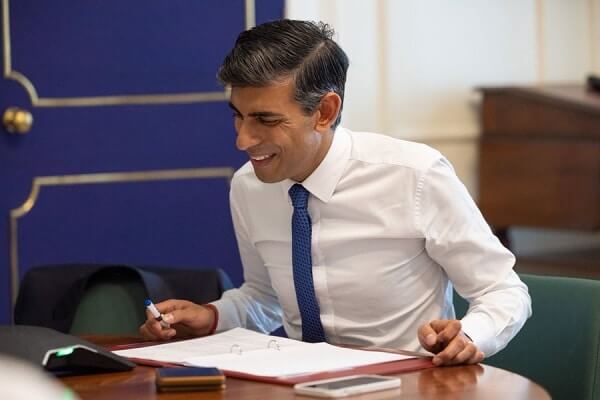For many, this last week has been touted as a Diwali miracle. First, a spectacular final over with India clinching victory over a valiant Pakistan. Next, the shortest-serving PM in UK history resigning and paving the way for Rishi Sunak to take up the prime-ministership. In some circles, the news has sparked celebration at seeing a person of South Asian heritage rise to the top job in a Western country (that too leading the old colonial empire itself). It has, however, also seen many people torn between pride at a diverse leader and consternation of the type of policies Sunak stands for. More than anything, it has also sparked widespread discussion about what this means for ethnically diverse individuals across the Western world in particular. Whilst I likely would disagree with virtually all of Sunak’s politics, I confess that a pride at his elevation to PM nonetheless persists.
There is an interesting split between those who vehemently disagree with Sunak’s conservative agenda and those who are celebrating his elevation to PM as a person of South Asian background. The divide in opinion is an understandable one. Indeed, within seconds of Sir Keir Starmer (leader of the UK Opposition) congratulating Sunak on being the first person of South Asian origin to become PM, Sunak’s first response in question time moved into the age-old adage of fear mongering about crime and “unlimited immigration”; a political strategy and policy stance that has been the rallying call for White conservatives across the West for decades, and one which has always placed people of multicultural heritage in the firing line. It is an uncomfortable irony, therefore, to see a man of multicultural background advocate for the same policies and use the same divisive rhetoric that have for so long kept multicultural individuals as outsiders or ‘the other’. Noting this, I do not think we should expect that all people of South Asian background or indeed multicultural heritage be expected to celebrate Sunak’s appointment as Prime Minister.
Having said that, I believe in this instance that it is possible to separate the broader symbolic significance of Sunak’s prime-ministership from his politics. Whilst I likely would disagree with most things Sunak says, there is nonetheless an unmistakable relief and sense of pride that I feel seeing his success and I do not think there is any shame in that. As an avid follower of politics and as a person of Australian-Indian background myself, I have never seen a person who looks like me lead a Western nation until now. It is undoubtedly a powerful symbol when the leader of the UK, a country with a dark history that debilitated countries including India and Australia’s First Nations people in the name of empire, is today led by a minority. To some degree, Sunak’s prime ministership normalises diverse leadership. It emphasises that people with immigrant heritage are not ‘less British’ (or less Australian in our context) and that they can represent and lead the country they love and have contributed to for so long – irrespective of the colour of their skin. Indeed, Dianne Abbott (a member of UK’s opposition) recognised the significance and pride felt by people from across the political spectrum seeing Sunak celebrate Diwali at Downing Street.
Whilst it is true that Sunak may be a typical ultra-rich conservative politician, I do not think it takes away from what his success symbolises to people of colour across the Western world. It is a sight we have never witnessed before and one which underlines the progress and political capital of diverse communities, and sets a precedent for the type of diverse leadership the rest of the Western world should expect from its representatives.
Indeed, it now raises important conversations in Australia about why the UK’s Conservative Party appears to boast more ethnically diverse leaders than Australia’s most progressive. That lack of cultural diversity saw severe consequences across Australia during COVID, with multicultural communities in Western Sydney particularly facing discriminatory policies.
Sunak may not be someone I would agree with. As it stands, his government may be in complete shambles given he is the UK’s third prime minister in two months and his party is currently on track to deservedly lose the next election. Nonetheless, seeing Sunak light Diwali diyas at Downing Street sparked a powerful message to multicultural communities across the West that diverse leadership is possible, and that our time is now.
READ ALSO: Rishi Sunak as PM: Twitter reactions




